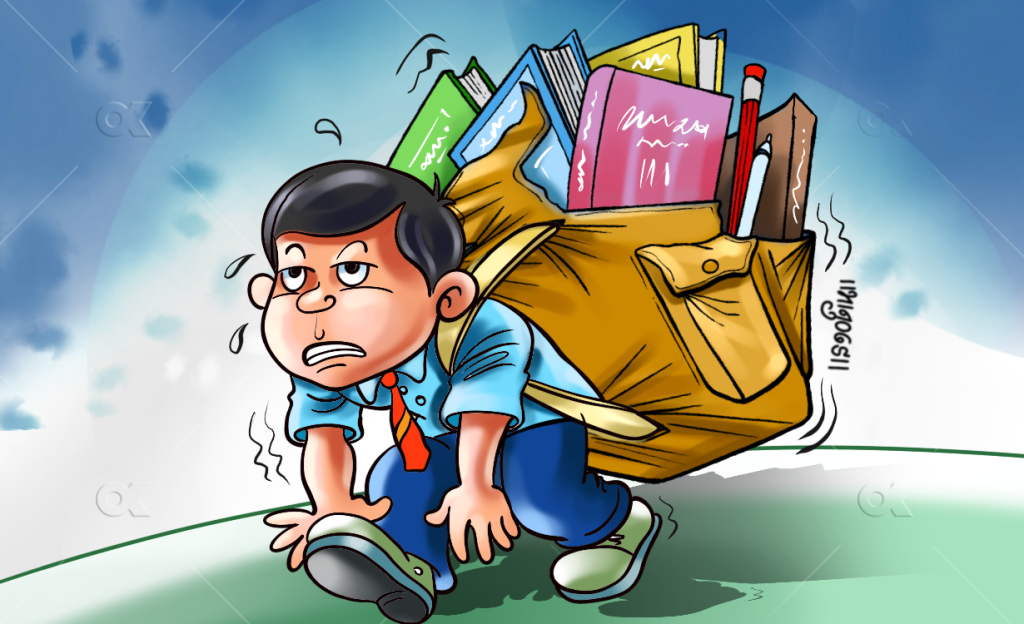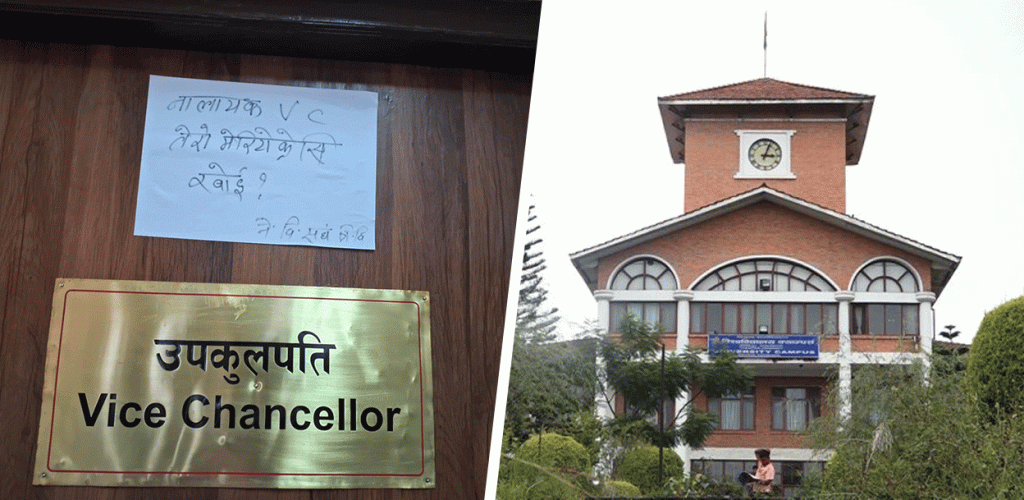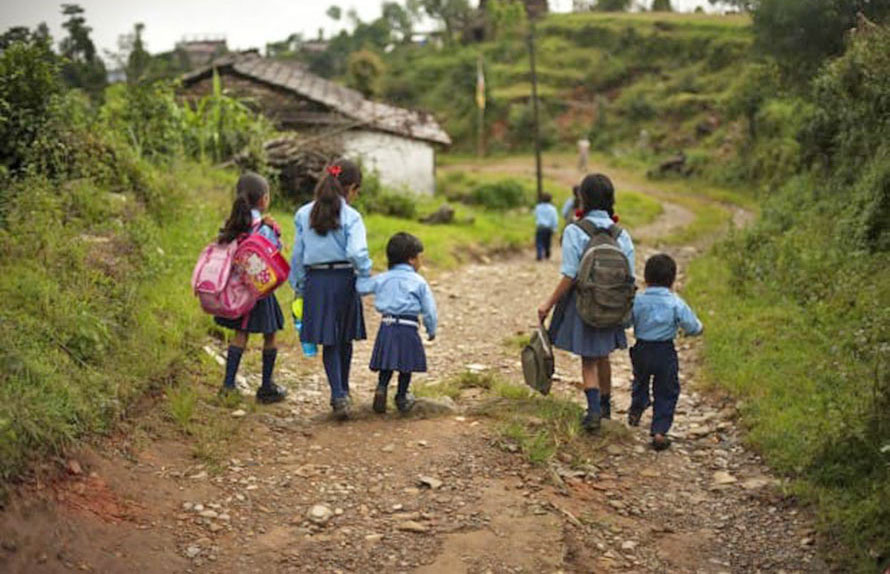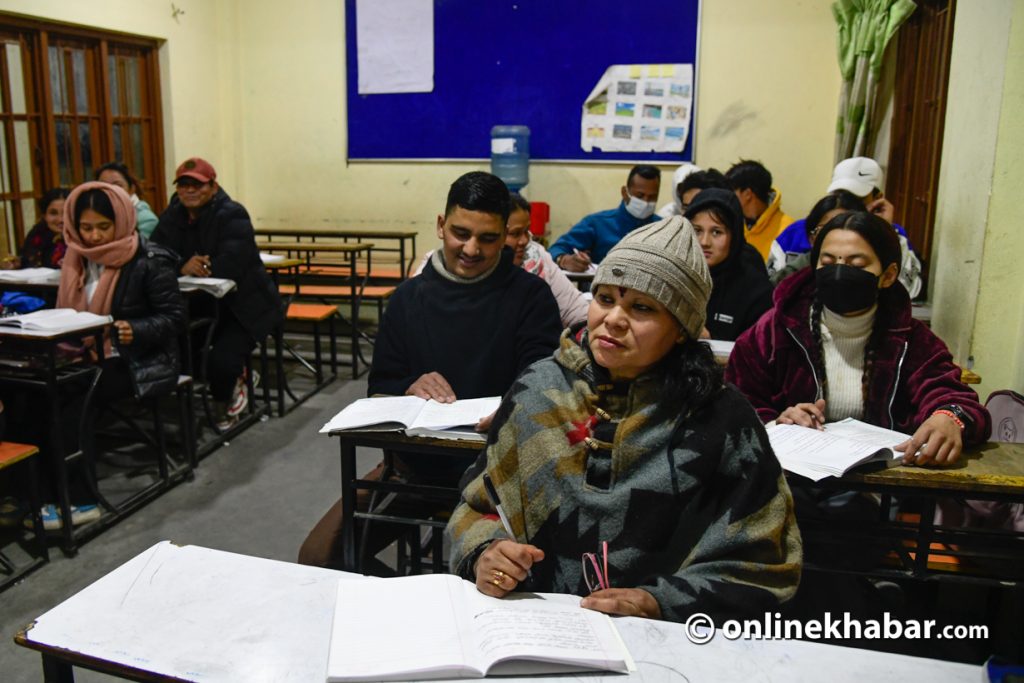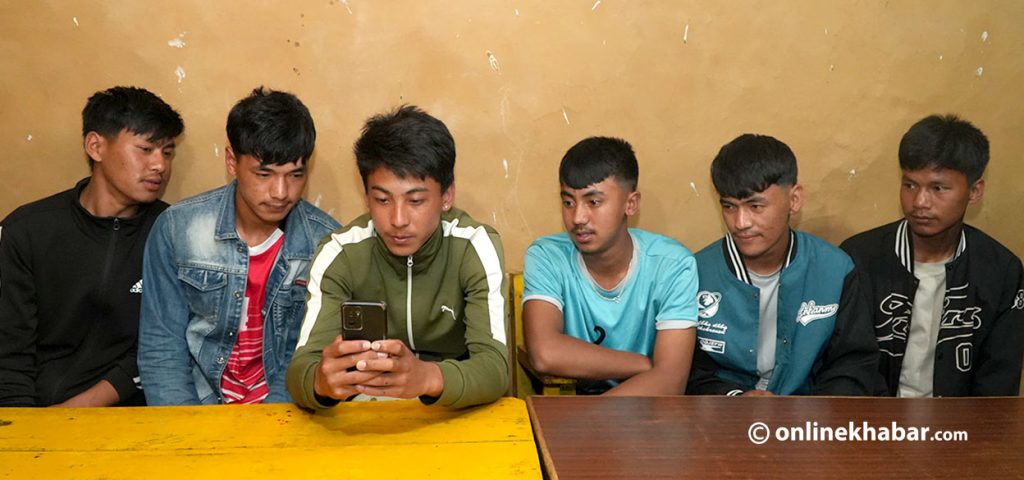Fourth-grader Saruna Koirala’s school is a five-minute walk from her home. Expectedly, children of her age can easily walk to their school; but due to her heavy bag, she always needs help from her mother.
“She says her back hurts because of the heavy bag, which is why I carry it to and from school,” says her mother.
And, why would not it be heavy? Koirala has a dozen books, a dozen notebooks, a water bottle and a tiffin box. “I think this is too much,” says Koirala’s mother.
Sujal Shrestha, a third-grader also faces a similar problem. After he was promoted to the grade, the school asked him to purchase 11 books. Even though his parents thought that taking 11 books to school every day is unnecessary, they had no choice but to obey the school.
“It’s hard for him to carry his bag, but there’s no choice,” says Shrestha’s mother.
She says that she wants to go to the school and tell them it is necessary for school children but knows her speaking alone will make no difference.
This is the case with most schools around the country. Every new session means the weight of school children’s bags increases to the extent they need the help of their parents to carry them. These kids complain about pain in the shoulders, back and neck, which in the long term will have a negative impact on their health.
Long-term impact
According to acupuncture specialist Sudarshan Basnet, parents often come to him with problems like back, shoulder and neck pain in children as young as 10. Basnet says he has treated many children aged over 10 for spinal cord injuries.
“These days schoolchildren complain about pain in their backbone and one of the reasons for it is a load of their backpack while going to school,” says Basnet.

In addition to the heavy burden of books, the current use of mobiles and computers by children has also caused problems in their muscles and spinal cord, he adds.
“A child who walks with a heavy load may have a problem with crouching. Schools these days demand a student to carry many books which lead to an increase in their mental stress. Along with that, its load can affect their walking position leading to knee and back pain,” he adds.
Similarly, orthopaedic surgeon Dr Ashok Ratna Bajracharya says the increasing use of mobile phones and laptops is also another reason why children are facing back pain.
“Usually children have less complication in comparison to adults and elderly. However, children who sit in the wrong position while using mobile or studying face problems in their back, neck and shoulder. Then, carrying heavy loads of books has also added such problems in children these days,” adds Bajracharya.
Moreover, if a child carries his/her backpack from only one side, there are chances that their back might bend he says.
The schools’ say
But, the schools say that they are not making students carry more books than they should. The founder of Xavier International School, Lok Bahadur Bhandari, says the schools only ask students to buy books that are best for them.
He says that even though the government has set up Janak Shiksha Samagri Kendra to publish the textbooks, the Curriculum Development Centre (CDC) has allowed various publications to publish the same curriculum and that means there different versions of the same book.
“At Xavier, we choose the books that have the best content and benefit our students the most,” says Bhandari.
Bhandari says his school is aware that heavy loads affect the students’ back, which is why it has a provision to keep books in the school itself.
“We ask students to take books that they need for homework. Rest, they can leave in in the school,” says Bhandari, adding they focus more on extracurricular activities to develop the students.
Experts’ advice
Educationist Bidya Nath Koirala says schools should focus more on making a practical curriculum than a theoretical one.
“No textbook in the world is practical. It’s great that the government has allowed multiple publications to publish textbooks, but schools need to adapt and make a practical curriculum,” says Koirala.
He says schools are still pushing for books because they get a certain percentage of commission from the publication. And, this is wrong as it is the student and the parents paying the price for it.
Nevertheless, he suggests focusing on integrated education rather than having thematic course books.
“The schools must pay attention to whether the subject is actually necessary or just giving burden to students. Children no longer need to be taught subjectwise courses because today’s children can search the internet. If schools and teachers understand this process, children will not have to carry so many books,” says Koirala.
This story was translated from the original Nepali version and edited for clarity and length.



